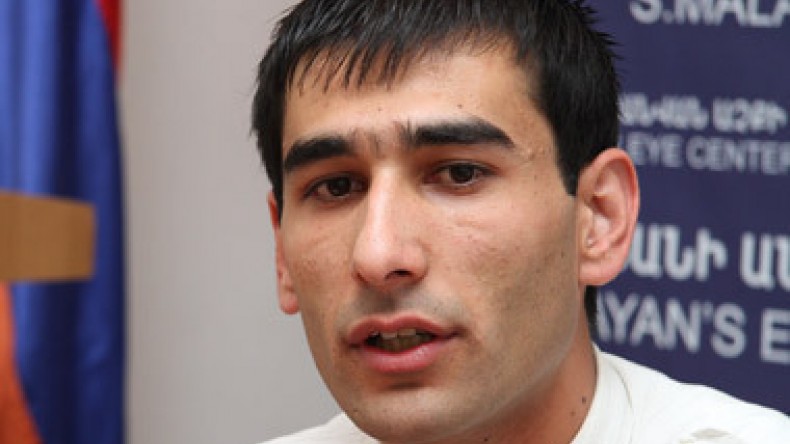
Expert: Non-kinetic warfare in Nagorno Karabakh conflict is different because of hate speech and racism voiced by Azerbaijan
Non-kinetic warfare in the Nagorno Karabakh conflict is significantly different from the overall perception, since it has a combination of hatred propaganda, racism and murder promotion. Political Developments Research Center (PDRC) Chairman Dr. Vahan Dilanyan said about this in his speech in the seminar called “Non-kinetic warfare in the Nagorno Karabakh conflict” that took place on March 19 in Washington and was organized by PDRC.
According to him, the recent escalations over the Crimean peninsula have once again directed our focus to the issues of frozen conflicts, nationalism and information warfare in the Eurasian territory. Referring to the dynamic risks associated with frozen conflicts, he highlighted the primacy of the factor of information in the analysis of conflicts.
Mentioning the extradited Azerbaijani murderer and Baku’s warlike rhetoric he noted that the aforementioned create an information atmosphere of Armenophobia. Dilanyan as well noted that similar racism was advocated in the Third Reich during the 1930s and 40s.
According to expert while the youth in Armenia and NKR determine their career path through having good education, in Azerbaijan the youth see that they can have successful career by killing an Armenian.
Dilanyan noted that despite the transformation of information flows and the rising availability of the Internet and social networking sites, Azerbaijani elite still determines information flows.
According to the expert, the formation of a victim identity is taking place, thus attempting to develop a moral high ground for another war against Nagorno Karabakh.
The expert also mentioned the recent news of an Azerbaijani family asking Armenian authorities for a political asylum. According to him the aforementioned develops a concern that the irrational facets of the advocated hatred culture in Azerbaijan serve as a basis for the development of a pathological cruelty which is one of the roots of terrorism.
He emphasized that while Armenia shows effective participation in peacekeeping missions, the institutional memory of the birth of terrorists in Azerbaijan comes from the participation of Afghan mujahedeen on the side of Azerbaijan during the Karabakh War. Dilanyan said that Azerbaijan’s policy threatens the overall stability and security in the region.
According to the expert, the international community and namely the OSCE that adhere to the principal of parity and have been reluctant to openly condemn such behavior of Azerbaijan risk fragile stability.
On its turn, PDRC Vice-Chairman Vilen Khlgatyan spoke about Azerbaijani regime’s spending of financial resources, in the context of which he mentioned the establishments of Heydar Aliyev statues in various cities, proposals of false resolutions of 1992 Aghdam events and huge financial policies being implemented in various think tanks and media platforms.
Referring to Aghdam events, the expert mentioned the stance of Azerbaijan’s first president Ayaz Mutalibov on the issue. The lecture attendees were fascinated when images were shown of dead civilians whom the Azerbaijani government claims are photos of victims from Aghdam, but in reality were photographs taken from Kosovo, Gaza, and Turkey.
Khlgatyan noted that pan-Turkism strategy is still relevant, since Turkey and Azerbaijan maintain an embargo against Armenia and continue to hold hostile positions against Armenia and the Armenian Diaspora.
As a logical continuation of war-prone behavior, Khlgatyan outlined the unprecedented increase of the Azerbaijani military budget. According to his opinion it aims to strengthen Azerbaijan’s position at the negotiation table. However, this policy has failed because it has only increased Armenia vigilance, and because Russia has helped to preserve balance of power.
According to the Center, the seminar was organized by the support of the Institute of World Politics, a division of which is Kosciuszko Polish Research Center. The event was attended by diplomats and experts, among them OSCE Minsk Group US Co-Chair James Warlick.
Newsfeed
Videos






























